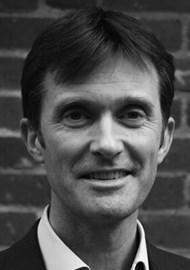
Declan Costello,
MA, MBBS, FRCS(ORL-HNS),
Editor, ENT & Audiology News;
Consultant Ear, Nose and Throat Surgeon,
Wexham Park Hospital,
Slough, Berkshire, UK.

Gareth Smith,
MSc, AuD,
Consultant Clinical Scientist (Audiology),
Southend University Hospital, UK.
E: Gareth.Smith@southend.nhs.uk
Music is a central part of many people’s lives, and ENT surgeons and audiologists frequently treat patients whose musical experience is affected by pathology. For September/October 2021, we explore a number of areas in which patients need the support of otologists, laryngologists, audiologists, and others.
In our ENT Features section, we hear from Otologist, Chris Aldren, who is himself an experienced musician (and whose three children are all professional musicians) about hearing disorders affecting music professionals. In the field of laryngology, Nick Gibbins is one of the UK’s most highly-respected sub-specialists: he regularly treats singers and tells us about his experiences, passing on some pearls of wisdom. The topic of reflux has been controversial for several decades, and Mark Watson and Jane Shaw are amongst the most experienced practitioners in this area – they unpick some of the myths in their article.
The COVID pandemic has been particularly tough for singers, because clusters of COVID in choirs in early 2020 led to the suggestion that the act of singing was inherently ‘dangerous’. Aerosol research (in which I, Declan, also collaborated) was conducted very rapidly to evaluate the risks of singing – Natalie Watson and Chris Orton tell us more in their article.
The perception and enjoyment of music for those with hearing loss can be immensely challenging. We hear from several authors about how Deaf and hard of hearing people can access music – from Jayne Fletcher-Brander discussing signed music to strategies for enhancing music perception with practical steps for those with hearing aids or cochlear implants (Harriet Crook and Alinka Greasley) through to composing music in the presence of Ménière’s disease (Andrew Hugill).
Considering that music can lead to noise damage, offering early, evidence-based practical solutions to music professionals is within the gift of hearing care teams. Marshall Chasin takes up this mantel in his article.
Whilst music can be a great remedy, for those with musical tinnitus it can be a great burden. Rene Lauw, Jan Dirk Blom and Jan Coebergh discuss the current understanding of musical hallucinations.





